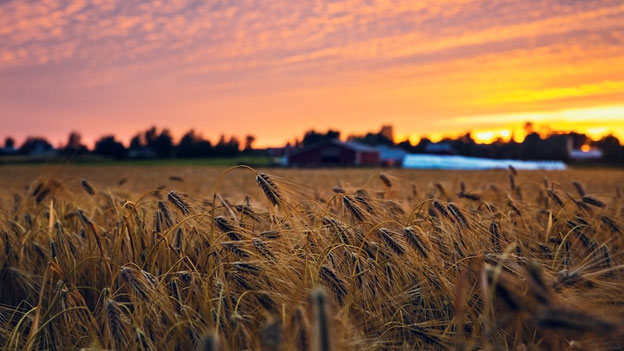Why Is Crop Fertilizing Necessary?
Just like human beings, plants also need a number of essential minerals and nutrients for better growth and to maintain good health. Extremely important for increased yields and high-quality crops, these nutrients and macronutrients are naturally present in the soil. However, with each harvest, the soil loses some of the nutrients as they follow the crop and if not replenished with nutrients on time, this can negatively affect the agricultural productivity of the soil and result in a number of issues in plants. This is when fertilization comes into the picture.
What are Fertilizers?
In order to grow and thrive, every plant needs a few different components including carbon, hydrogen, oxygen, nitrogen, potassium, phosphorus etc. Generally, plants take up all these nutrients from the soil, but when they can’t, it can result in nutrient deficiency. Fertilizers are materials containing a number of chemical ingredients to supply all the nutrients in a readily available form for plant use. Fertilizers are added to the soil to replace nutrients that the soil loses with each harvest. They help to promote plant growth while improving soil fertility. Regular crop fertilization is one of the sustainable farming practices.
Mainly, there are two different types of fertilizers: organic and inorganic. Organic fertilizers are produced using natural substances, obtained from plants and animals. And as the name suggests, inorganic fertilizers contain a number of chemical ingredients, essential for plant growth.
The main purpose of crop fertilization is to grow high-quality crops and get higher yields by supplying all the essential micro and macronutrients to the soil. This can be done if you use the right type of fertilizers as per the specific requirements of your soil and crop.
Importance of Crop Fertilization
With the continuously growing population, it is getting more and more difficult to meet the increasing agricultural demands. The main reason for significant decreases in agricultural production is soil infertility caused by a lack of nutrients. To solve this major issue, regular crop fertilization is required.
Fertilizers are not only used to supply important nutrients to the plants and soil, but they also increase plants’ tolerance toward pests. When used in appropriate quantities, fertilizers get rid of pests resulting in much higher crop yields. This reduces the reliance on insecticides and herbicides in order to obtain high-quality crops.
Extremely important for efficient crop production, fertilization has a number of other benefits as well:
- It is the easiest and fastest way to provide all the important nutrients to the plants.
- It helps to restore soil fertility.
- This can help you to increase crop yields and improve yield quality.
- It improves the water holding capacity of the plants and increases their root depth.
- Fertilizers that are rich in potassium help in strengthening the straws and stalks of the plants. And the phosphorus content of fertilizers helps in improving the growth rate of seed formation and root development in plants.
- If you use fertilizers with high nitrogen content, they enhance the overall growth of the plants.
- If you are looking for a way to improve your crop yield, you have all the reasons to implement regular crop fertilization along with other sustainable farming practices.



